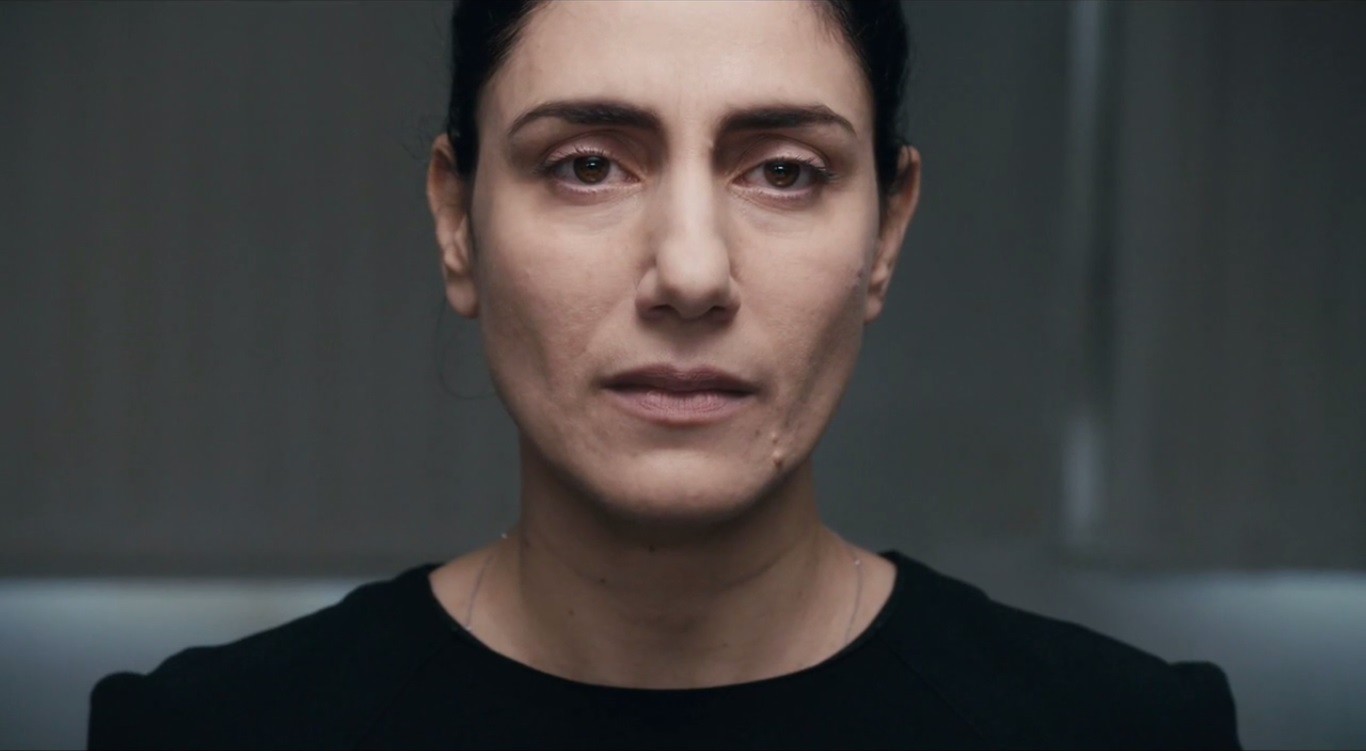
MPAA Rating: NR | Rating: ★★★★★
Release year: 2015
Genre: Drama, Foreign Director: Elkabetz
In Israel, marriage and divorce are determined by spiritual authorities, not civil ones. Only the rabbis can officially legitimate a marriage, as well as grant a divorce, or a gett. While the divorce can be initiated by either spouse, it is ultimately the husband’s prerogative and consent that determine whether or not the marriage will officially dissolve. This places a significant amount of responsibility in the hands of the husband. So what happens if a husband won’t permit the divorce? No infidelity, no physical abuse–the couple’s love has waned they bring out the worst in the other.
This is the setting for Gett: The Trial of Vivian Amsalem. And it wrecked me.
Gett is like Iranian filmmaker Asghar Farhadi’s A Separation in a Jewish culture, or a marital version of 12 Angry Men. Set entirely in the religious courtroom of the rabbis, the film is a series of trial scenes. The rooms are stark and worn, like having judicial hearings in the DMV. The color palette is nearly black-and-white, a greyish hue bringing out the paleness of Vivian’s skin and the depth of emotion in her brown eyes. And let me tell you about her eyes, for they are the central feature of this film. So much is communicated through her gaze, and many of the “conversations” between Vivian and her husband, Elisha, are done entirely through glances and glares. There is a singular scene where Vivian’s face is framed in the camera in close up, a moment reminding me of Dreyer’s The Passion of Joan of Arc in its intimacy and emotional weight. Waves of emotion pass through her quivering eyes and lips. As Dreyer put it,
“Nothing in the world can be compared to the human face. It is a land one can never tire of exploring. There is no greater experience in a studio than to witness the expression of a sensitive face under the mysterious power of inspiration. To see it animated from inside, and turning into poetry.”
Yet Gett is not just silent shots of faces. There are incredible moments of dialogue as Vivian fights for her freedom from her passionless marriage. Elisha continues to hold on; he will not grant a divorce. They both bring lawyers to plead their cases before the panel of rabbis, and bring character witnesses to testify about the marriage from an outside perspective. In each trial hearing and debate, we realize that this entire proceeding is far more complex than previously imagined. Is Elisha holding on to the marriage out of bitter spite or unrequited love? What are Vivian’s true motives for seeking a divorce? What authority does the religious community hold over a couple’s marriage? What does fidelity and commitment truly look like in such circumstances?
Many of the camera angles are point-of-view shots from the perspective of Viviane or Elisha, looking over the shoulder or behind their lawyers and witnesses as arguments escalate. We see what this couple sees, and it’s often difficult to watch. These types of shots, as well as some of the pacing and editing, move this film from beyond its stage-like setting–this is a cinematic experience. Gett is holistic in its emotional captivation–it’s funny, heart-warming, painful, saddening, tense, contemplative, and cathartic. Yet it handles these emotions with delicacy and care, not whipping the audience around on a roller coaster of pathos or simply laying on the sentimentality and melodrama. It’s a rich experience for the viewer as we are invited into the innermost proceedings of a marriage and a religious culture. Many of the tensions between Viviane and Elisha seem to have to do with differing religious practices and degrees of faith.
This is the third collaboration for siblings Ronit and Schlomi Elkabetz, who wrote and directed Gett following their films To Take a Wife and 7 Days. Ronit portrays Viviane with ferocity and pathos, and the film is inspiring and challenging both in form and content. The film also offers a commentary and critique on strict religious practices and the balance between piety and grace. The rabbis are given a difficult task, and I would not necessarily want to be in their place as a pastor or religious authority. It’s one thing to counsel or guide a couple through marital difficulty; it’s entirely another to be the primary judge for whether or not their marriage continues. Because of this subtext, Gett: The Trial of Vivian Amsalem is a deeply religious film, one that offers a glimpse into a particular Jewish culture while also revealing the universal struggles all married couples face–commitment, patience, and trust.
Gett: The Trial of Viviane Amsalem is now streaming on Amazon Prime.
IMDB Listing: http://www.imdb.com/title/tt3062880/